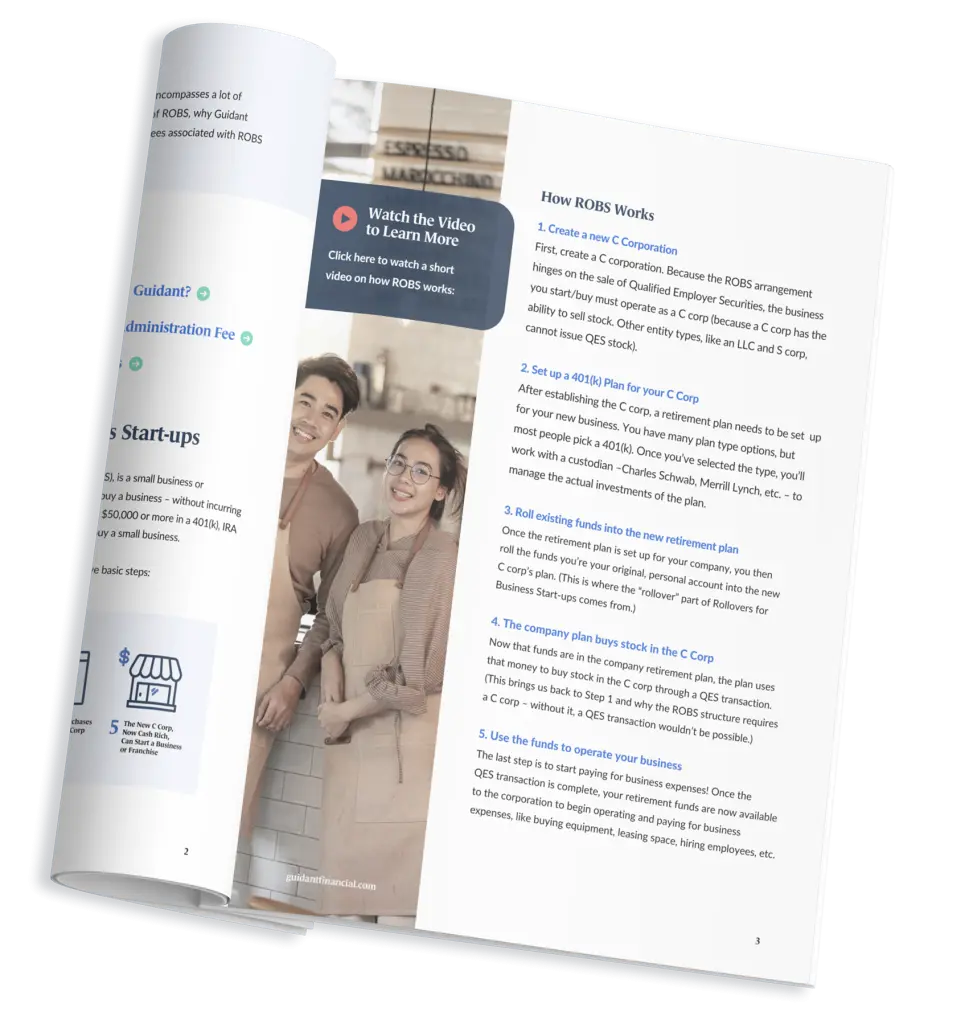Contents:
- Resources for Transitioning from Active Duty to Business Ownership
- Small Business Financing Options for Veterans
- Resources for Veteran-Owned Small Businesses
It’s easy to see why veterans make great business owners. The courage, discipline, and perseverance learned and earned in military training create a strong foundation for overcoming the challenges of entrepreneurship. SBA data shows that veterans are about 45% more likely to become business owners than those with no military experience. Still, even for the most qualified candidates, the hurdles on the journey to small business ownership can prove challenging.
To ease the process from military service person to business owner, this Guide to Veteran’s Small Business Ownership covers a comprehensive look at resources for veterans whose next mission is small business ownership.
Resources for Transitioning From Active Duty to Business Ownership
No matter what kind of career is on the horizon, as a veteran, there are unique challenges when transitioning to civilian life. It’s important to set yourself up for success as you embark on your small business journey. If your next step after leaving military service is small business ownership, consider these resources for building a solid foundation to overcome entrepreneurial challenges.
Health Insurance
It’s a lot easier to focus on taking care of business when you know that you and your family’s basic needs are met. And if you’re self-employed, obtaining insurance can be a complex task. Fortunately, there are affordable health care options for veterans. Most veterans qualify for VA healthcare — either at no cost or with modest co-payments. Visit the U.S. Department of Veteran Affairs to apply online or to receive instructions for applying in person, by mail, or by phone.
Education and Training
Many veterans feel comfortable diving right into small business ownership. And there’s no reason not to — the military prepares servicepeople for the challenges of small business ownership. However, if you’re looking for more training or education before opening up shop, there are many resources available to help you cover the cost of traditional degrees, on-the-job training, apprenticeships, and even licensing and certification fees. These programs include:
- Boots to Business. Offered in partnership with the Small Business Association (SBA), Boots to Business (B2B) is a two-day in-person course that provides veterans with the foundational training needed for business ownership. These courses are offered in various locations across the country. To register, contact your local Transition Service Manager.
- V-WISE. Veteran Women Igniting the Spirit of Entrepreneurship (V-WISE) is an entrepreneurial training program for female military personnel. The program consists of 15 days of online training, a 3-day entrepreneurship event, and ongoing mentoring.
- Post 9/11 GI Bill. Veterans who served in the military after September 10, 2001 are eligible for training and education benefits though the Post 9/11 GI Bill.
- Yellow Ribbon Program. If your training and education needs aren’t met by the 9/11 GI Bill, the Yellow Ribbon Program can help cover the costs of higher education.
- Veteran Business Outreach Centers. The VBOC program provides business training, partner referrals, and counseling to transitioning service members, veterans, and military spouses.
Networking Opportunities
Another great place to find support — and meet potential business partners — is attending veteran networking events. It’s easy to find networking events near you with a simple Google search. Just by entering the term ‘veteran networking events,’ Google will pull up a list of events near you with dates and times. If you don’t find what you’re looking for, you can also use these resources:
- Veterans Business Network. Beyond listing nation-wide events on their site, the VBN also serves as a place to connect with like-minded entrepreneurs.
- Military Officers Association of America. The MOAA hosts an annual networking and hiring forum for service members and veterans where you can meet fellow entrepreneurs, mentors, and business resource specialists.
Small Business Financing Options for Veterans
Beyond years of applicable experience, another advantage for veterans pursuing business ownership is an abundance of financing options. Veterans can apply for all equity and debt financing options available to civilians, but there are also several grants and loans specifically designed to support ex-military personnel.
Veteran-Specific Grants and Loans
- Warrior Rising. On a mission to support “vetrepreneurs,” Warrior Rising provides training and guidance, but also opportunities for small business funding. Through several avenues, they help with initial start-up costs as well as hosting funding ‘Shark Tank’ competitions.
- Veteran’s Business Fund (VBF). VBF is a nonprofit organization created to help veterans transition to small business ownership. The VBF helps hopeful veteran business owners by helping them to acquire the capital needed for a down payment on a small business loan.
- SBA Express Loans. 73% of all SBA loans awarded to veterans are less than $350,000. SBA Express Loans provide up to $350,000 in small business financing and are funded much quicker than traditional SBA loans. To encourage more participation and funding opportunities for veterans, the SBA has reduced the initial Guaranty Fee of 3% to 0% for qualified veterans.
- Vocational Rehabilitation and Employment Services for Veterans with Disabilities (VR&E). The VR&E program helps veterans with service-related disabilities prepare for employment. The benefits from this program include assistance with supplies and equipment for self-employment ventures.
- StreetShares. As a veteran-founded company, StreetShares offers online lending options to veterans who are pursuing business ownership. They provide both term loans and lines of credit up to $250,000 with repayments terms up to 36 months. The StreetShares Foundation also hosts an annual grant competition for existing veteran-owned businesses with a first-place award of $15,000. To be eligible, businesses must have a social impact on the military community either as a main business function or in conjunction with.
Additional Financing Options
- Rollovers for Business Start-Ups (ROBS). Also known as 401(k) business financing, ROBS provides another financing for veteran-owned small businesses. Once you’ve separated from service, your Thrift Savings Plan (TSP) retirement savings becomes ‘rollable.’ ROBS makes it possible for you to use this money to fund a start-up, purchase an existing business or franchise, or use as a down payment on an SBA loan. ROBS is not a loan, so there are no monthly repayments to make, and there’s no interest, so the money you earn can go back into growing your business or into your pocket.
- SBA 7(a) Loans. For veterans whose needs aren’t met with SBA Express loans, there’s also the option to apply for an SBA 7(a) loan. 7(a) loans have a longer funding cycle than Express loans and can take a few months to complete the application and funding process. 7(a) loans also tend to have lower interest rates than Express loans and provide up to $5 million in small business funding, which can be used for almost any business activity including start-up costs, buying an existing business, or purchasing a franchise. The key to obtaining an SBA loan is taking steps to ensure you’re a well-qualified borrower, obtaining enough cash for a sizable down payment, and writing a winning business plan.
Learn how you can finance your small business with our Complete Guide to Small Business Funding.
- Unsecured Loans. Veterans who have healthy credit scores and are looking for fast financing may be eligible for unsecured loans. This type of funding provides $10,000 to $150,000 in small business financing. Unsecured loans are essentially a line of credit with no interest for the first year, but then rates jump to the double digits starting the second year. So unsecured loans are best for borrowers who can quickly repay their loan.
Resources for Veteran-Owned Small Businesses
Once the right training and funding are in place, there are a number of resources to turn to as you get your business up and running. Take advantage of these private and government-sponsored programs to get more clients in the door, continuing education support, and valuable networking opportunities.
Government Contracts
As a veteran business owner, there are government contracting opportunities available for you (depending on the industry of your business). To take advantage of these opportunities, you can get started here:
- Veteran Federal Procurement Entrepreneurship Training Program (VFPETP). The VFPETP offers three courses intended to accelerate success for veterans in the federal marketplace. According to the SBA, graduates of the courses report an average increase in revenue of 54% in the first year of completing the program.
- Service-Disabled Veteran-Owned Small Business Program. The SBA reports that the federal government aims to award at least 3% of all federal contracting dollars to service-disabled veteran-owned small businesses each year. To learn more about properly registered your business to qualify for these contracts and to obtain additional resources, visit the VA Office of Small and Disadvantaged Business Utilization.
- SBA Federal Contracting Guide. Given the complex nature of federal contracting, the SBA offers several free resources including an online guide, contracting assistance programs, and counseling and training.
Patriot Boot Camp (PBC)
PBC is a nonprofit organization that provides active service members, veterans, and military spouses with training, support, and community as they pursue business ownership. PBC’s main programming includes a 3-day boot camp. The program’s graduates have impressive track records including a 2016 sample of 56 alumni that had raised over $60 million in venture capital.
National Veteran-Owned Business Association (NaVOBA)
NaVOBA is an independent non-profit organization that makes it easier to connect businesses in corporate America with certified veteran-owned businesses for contracting opportunities. The organization also regularly offers events and networking opportunities for members to meet in person with corporate allies. To start taking advantage of NaVOBA’s services, you can apply for certification through the association as a Veteran’s Business Enterprise. Keep in mind; this certification does not qualify your business for government contract opportunities.
Whether you’re interested in launching a start-up or purchasing an existing business or franchise, there’s several ways to find success as a veteran business owner and a number of resources to help you get there. Whether it’s training and networking opportunities, small business loans and grants for veterans, or certifying as a veteran-owned business, be sure to take advantage of the numerous resources for small business ownership.


















